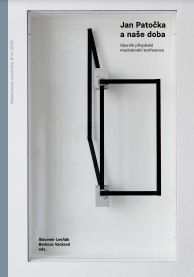Jan Patočka a T. G. Masaryk
Jan Patočka and T. G. Masaryk
Author(s): Jan Zouhar
Subject(s): Recent History (1900 till today), Contemporary Philosophy, WW II and following years (1940 - 1949), Post-War period (1950 - 1989)
Published by: Masarykova univerzita nakladatelství
Keywords: Patočka; Masaryk; Czech philosophy;
Summary/Abstract: Masaryk was one of the personalities whose work Jan Patočka studied throughout his whole career. In 1938 Patočka subscribed to the key idea of Masaryk’s philosophy – the idea of European scholarship. In 1946 Masaryk became an impetus for Patočka’s analysis of the depths of the moral and spiritual crisis caused by World War II. Patočka’s most extensive historical work on Masaryk comes from the early 50s. It focuses on the Hilsner affair and bears the title Masaryk in his fight against antisemitism. Patočka’s critical stance towards Masaryk was reflected in the conception of the reconstruction of the TGM Institute in 1968. Contradictions in Masaryk’s thought presented challenges for Patočka and a stimulus for his further philosophical work. In 1970s, Patočka focused on a philosophical assessment of Masaryk’s political activities, especially his foundational role in the constitution of Czechoslovakia, and wrote two significant studies An Attempt at Czech National Philosophy and its Failure, and On Masaryk’s Philosophy of Religion. Patočka’s assessment of Masaryk’s philosophical work varied. He regarded Masaryk’s philosophical theory contradictory and also questioned Masaryk’s philosophy of history. In his opinion, Masaryk correctly depicted the phenomenon of crisis and the necessity of its overcoming, and rightly emphasised the need for active responsibility and ethics, but his positivistic rationalism did not enable to capture the responsibility philosophically.
Book: Jan Patočka a naše doba - Sborník příspěvků mezinárodní konference
- Page Range: 12-22
- Page Count: 11
- Publication Year: 2018
- Language: Czech
- Content File-PDF

